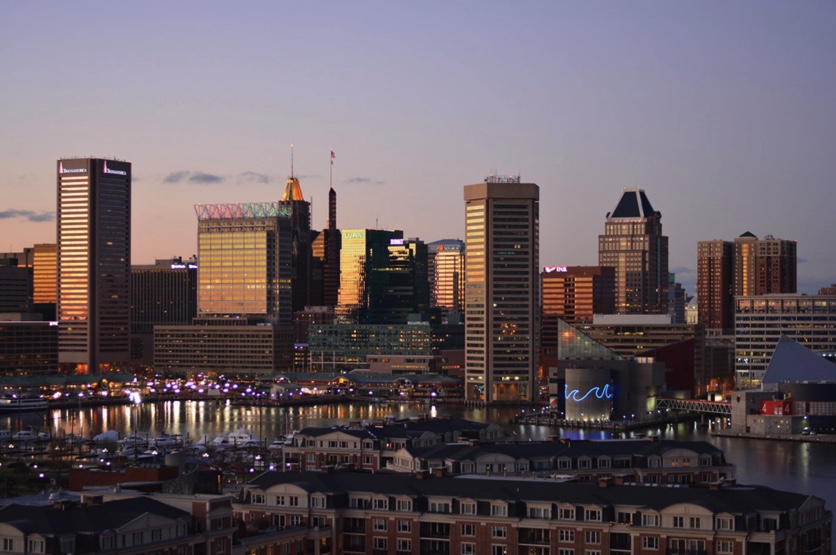Last week, Baltimore City State’s Attorney, Marilyn Mosby, announced her office will no longer be prosecuting low level offenses including prostitution and drug possession, a decision that could potentially mean the start of real reform for Baltimore’s criminal justice system.
Around a year ago, in an attempt to slow the spread of COVID-19, the city’s State’s Attorney’s office collaborated with public health officials to to shrink the number of inmates in jails and prisons. As a result of the program’s promising improvements to city crime rates, it has been taken to the next level.
The hope this announcement inspires cannot be overstated, as described in a statement released by the State’s Attorney office, “Today, America’s war on drug users is over in the city of Baltimore.”
Although moving to end the prosecution of low level offenses is not an entirely new idea, as others like John Cruezot, the district attorney of Dallas, Texas, have taken similar action, the decision is still groundbreaking. Baltimore has long had a fierce reputation for its toughness on crime, a reputation it seeks now to change.
The impact of such a decision in a city plagued by mass incarceration, systematic racism and widespread poverty may very well extend to cities across the nation. If Baltimore can devote themselves to such reform, the question rises, why should others not do the same?
Despite praise for these promises and plans, recent federal investigations into the financial records of Nick and Marylin Mosby cannot be ignored. While excitement builds for this announcement, Mosby is not deserving of all credit for it.
Instead, attention must shift away from the city’s political figures and onto how exactly the city will carry out this decision in a meaningful way.
Alongside the end to these prosecutions, Baltimore has decided to take a more “common sense” approach to handling issues of drug addiction by treating them as issues of mental health instead of crime. This new approach could mean residents have access to much-needed help and treatment services.
To enact this approach, the Baltimore City Police Department will refer people to city services in place to address their needs. These include local organizations such as the Sex workers Promoting Action, Risk reduction and Community mobilization, who support sex workers in the southern Baltimore region, and Baltimore Crisis Response Inc., who focus on mental health and substance use. Funding and improvements to these city services could continue to positively impact the city’s crime rates.
According to the State’s Attorney’s office, as a result of changes over just the last year, the incarceration population has decreased by 18 percent and the amount of people entering the criminal justice system has gone down 39 percent. Additionally, violent crime in Baltimore has gone down by 20 percent and property crime by 36 percent.
These numbers are nothing to shy away from. Baltimore is home to over half a million people, predominantly African American. Historically, the war on drugs has discriminated heavily against African American, Hispanic and Latino communities.
If carried out correctly and thoroughly, this announcement could be a first step towards true reform in criminal justice proceedings and the deconstruction of modern mass incarceration.
It is also a big step forward in the way we relate substance use to mental health. Incarceration has been used as a tool to leave substance abuse unaddressed, it has categorized it as an issue unworthy of attention and has left victims of substance abuse neglected.
In the past year, Baltimore has proven that there is a reason and a way to change how we approach crime. We need “common sense” approaches to crime, ones that do not discriminate against minorities and ones that focus on addressing substance use disorder and more with mental health services and treatment.
There is still the unknown of how local programs will be addressing the influx of referrals, which alludes to the need for more government-funded programs. However, if the city of Baltimore is willing to put this to work, then maybe we can start to see positive outcomes of this implementation.
Simply refusing to prosecute does not necessarily mean things will be drastically different overnight. Violent crime is still significant in Baltimore which tells of deeper social, economic and political issues in need of solutions.
However, it does force legislators and lawmakers to reassess how they can put in place changes to their city. Furthermore, it gives space for government to consider a restructuring of Baltimore City Police and their current practices.
Baltimore and other major cities across the U.S. still have a long way to go in order to shift patterns in and treatments of crime, but this step is nonetheless significant. Everyone plays a role in this path forward, whether you live in Baltimore, somewhere else in Maryland or in an entirely different state. Nothing meaningful will result if we wait and hope for these policies to result in widespread reform; we all must take an active role in the solutions presented now.

